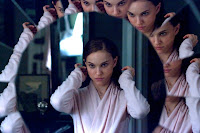When I was younger and just discovering tennis, I thought that the worst tragedy that could befall me would be to lose a limb, especially a leg. I had devised a (morbid) hypothetical that, should I be diagnosed with some form of cancer which required the removal of my leg to ensure my survival, I would opt to keep the leg, bravely keep playing tennis through the pain and die a martyr to my new found passion. Oh, the folly of youth.
Aron Ralston, a carefree young man and extreme weekend adventurer probably never entertained such hypotheticals; it's doubtful he even contemplated death. But then one weekend in 2003, whilst out canyoning in Utah and alone as always, he slipped, fell and found his right arm pinned between a boulder, literally between a rock and a hard place.
That's the name of Ralston's book which details the five and a bit days – 127 hours – he spent trapped in that canyon; with little food or water (forced to drink his urine), hallucinating from dehydration, and eventually forced to make a tough decision: sever his arm or perish.
Director Danny Boyle, and screenwriter Simon Beaufoy (who also penned Boyle's Slumdog Millionaire), have opened up Ralston's intense but brief story so it's not the claustrophobic exercise in style that was Rodrigo Cortes's Buried (2010), which (successfully) saw Ryan Reynolds spend 90-odd minutes trapped in a box with nothing but a mobile phone to play off.
Boyle brings all of his directorial flair – split screens, soaring vistas of the desert, handy-cam footage, flashbacks and hallucinations – to bear on the bare bones material, aided immensely by his two cinematographers, Enrique Chediak and Anthony Dod Mantle. And, of course, the performance by James Franco.
As Ralston, Franco has little room to work with physically but the success of 127 Hours rests squarely on his shoulders given he is, for the most part, the only person on screen. Franco captures the adventurous spirit of Ralston as well as the inherent arrogance and selfishness, traits which Ralston is made all too aware of in light of his imminent demise.
That demise is, of course, avoided by that fateful decision and that one scene – the money shot, if you will – where Ralston, with nothing but a pocket knife, amputates his arm to gain his freedom. It's a tough scene to watch; I tried two times and failed. But it's the sound of the bones he has to break before he can cut that really did me in. Would I be able to do that? Could you make that choice?
To paraphrase another Boyle film (2006's Trainspotting), Aron Ralston chose life. As such, 127 Hours is a celebration of the human spirit; it's life affirming but not in the trite way that so many films can be. It's an intense but rewarding experience.

















